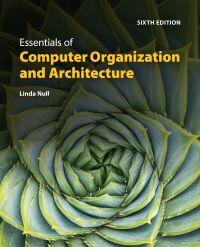Consider a 32-bit hexadecimal number stored in memory as follows. a) If the machine is big endian
Question:
Consider a 32-bit hexadecimal number stored in memory as follows.

a) If the machine is big endian and uses two’s complement representation for integers, write the 32-bit integer number stored at address 100 (you may write the number in hex).
b) If the machine is big endian and the number is an IEEE singleprecision floating-point value, is the number positive or negative?
c) If the machine is big endian and the number is an IEEE singleprecision floating-point value, determine the decimal equivalent of the number stored at address 100 (you may leave your answer in scientific notation form, as a number times a power of 2).
d) If the machine is little endian and uses two’s complement representation for integers, write the 32-bit integer number stored at address 100 (you may write the number in hex).
e) If the machine is little endian and the number is an IEEE single-precision floating-point value, is the number positive or negative?
f) If the machine is little endian and the number is an IEEE single-precision floating-point value, determine the decimal equivalent of the number stored at address 100 (you may leave your answer in scientific notation form, as a number times a power of 2).
Step by Step Answer:

Essentials Of Computer Organization And Architecture
ISBN: 9781284259438
6th Edition
Authors: Linda Null, Julia Labur





